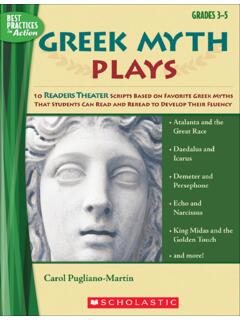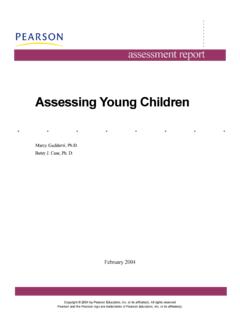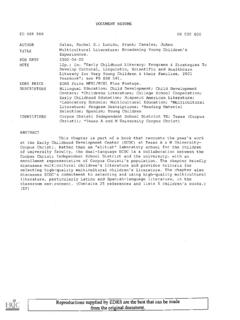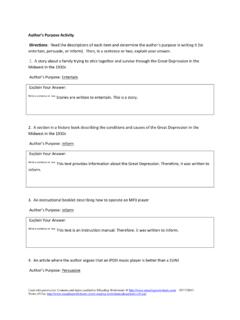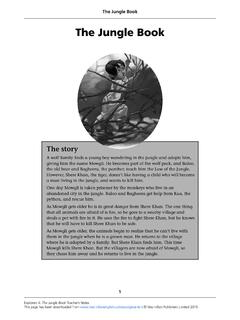Transcription of The Impact of ebooks on the Reading Motivation and ... - ed
1 The Impact of ebooks on the Reading Motivation and Reading Skills of Children and young People . A rapid literature review Irene Picton National Literacy Trust September 2014 National Literacy Trust The Impact of ebooks on the Reading Motivation and Reading Skills of Children and young People 2014 2 About the National Literacy Trust We are the only national charity dedicated to raising literacy levels in the UK.
2 Our research and analysis make us the leading authority on literacy. We run projects in the poorest communities, campaign to make literacy a priority for politicians and parents, and support schools. Visit to find out more, donate or sign up for a free email newsletter. You can also find us on Facebook and follow us on Twitter. Copyright National Literacy Trust 2014. You may report on findings or statistics included in this report if you accredit them to the National Literacy Trust. Suggested reference for this report is: Picton, I.
3 (2014). The Impact of ebooks on the Reading Motivation and Reading Skills of Children and young People: A rapid literature review, London: National Literacy Trust. We will consider requests to use extracts or data from this publication provided that you: Acknowledge that the content is the work of the National Literacy Trust and provide appropriate references in any publications or accompanying publicity; State that any views expressed are yours and not necessarily those of the National Literacy Trust. National Literacy Trust The Impact of ebooks on the Reading Motivation and Reading Skills of Children and young People 2014 3 Table of contents Introduction.
4 4 4 Main findings .. 4 ebooks and Reading behaviour .. 6 ebooks and Reading enjoyment .. 10 ebooks and Reading skills .. 11 Conclusion .. 17 References .. 18 Appendix A: National Literacy Trust survey sample characteristics .. 20 Tables and figures Figure 1: Proportion of children Reading in print and on electronic devices .. 6 Figure 2: What children were Reading in print and on electronic devices .. 7 Figure 3: Proportion of children Reading fiction by format and gender .. 8 Table 1: Use of electronic devices to read by age and gender.
5 9 Table 2: Reading attitudes and enjoyment in children who read in print and on screen daily .. 10 Table 3: Reading content and Reading attainment in print and on screen .. 16 Table 4: Reading frequency and Reading attainment in print and on screen .. 16 Table 5: Enjoyment of Reading and Reading attainment in print and on screen .. 16 Table A1: Sample age .. 20 Table A2: Ethnic background .. 20 National Literacy Trust The Impact of ebooks on the Reading Motivation and Reading Skills of Children and young People 2014 4 Introduction The National Literacy Trust recognises the importance of technology as a tool for teaching literacy skills and we are keen to explore this in greater detail.
6 In September 2014, the National Literacy Trust and RM Books are embarking on a joint study to explore the Impact of ebooks on the Reading Motivation and Reading skills of children and young people in around 100 primary and secondary schools across the UK. Final conclusions will be published in October 2015. In preparation, this rapid literature review explores some of the research currently available on the role that technology plays in the literacy lives of young people. Overview While ebooks have been around for many years, recent rapid improvements in the versatility and affordability of e-readers and tablets, along with increased access to broadband internet, have lead to a dramatic rise in household ownership of these devices.
7 Between 2012 and 2013, the proportion of children responding to the National Literacy Trust s annual literacy survey who owned an e- reader rose from 20% to 30%, while tablet ownership increased from 38% to 65% and smartphone ownership from 38% to 70%. A 2013 Ofcom survey1 found that tablet use at home by children aged 5 to15 almost tripled between 2012 and 2013, rising from 14% to 42%,. Electronic publishing has also developed during this time, allowing readers access to an ever-growing range and quality of ebooks , whenever and wherever they happen to have their portable device to hand.
8 Academic and media interest in the difference between Reading in print and Reading on screen has grown as devices and software facilitating Reading on screen become a greater part of everyday life, leading to a growing field of observation exploring the relationship between children s Reading on screen and their Reading skills and behaviour. While, until recently, the quality and quantity of ebooks for children has not been sufficient to provide material for large-scale longitudinal studies, many aspects of Reading on screen have been explored in a range of international and national research.
9 This rapid review draws together findings from studies related to children s screen Reading behaviour, enjoyment and skills, both from secondary sources and in (as yet unpublished) findings from the National Literacy Trust s annual literacy survey 20122, which included questions allowing us to examine the interplay between children s use of technology and their Reading habits. Main findings The National Literacy Trust s annual literacy survey questions thousands of children and young people aged 8 to 16 about their literacy behaviours.
10 In 2012, children reported Reading more on computers and other electronic devices than in print form for the first time, confirming the central role of technology in young people s literacy lives. Almost all (97%) children said they had access to electronic devices such as computers, tablets, phones and e-readers, and almost all (97%) had access to the internet at home. Children were more likely to say that they read on screen than on paper outside school. reported Reading on a computer, phone or tablet, compared to Reading in print ( a book, magazine or newspaper).










